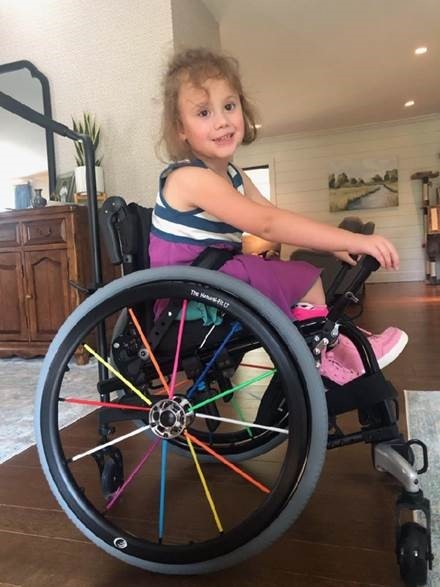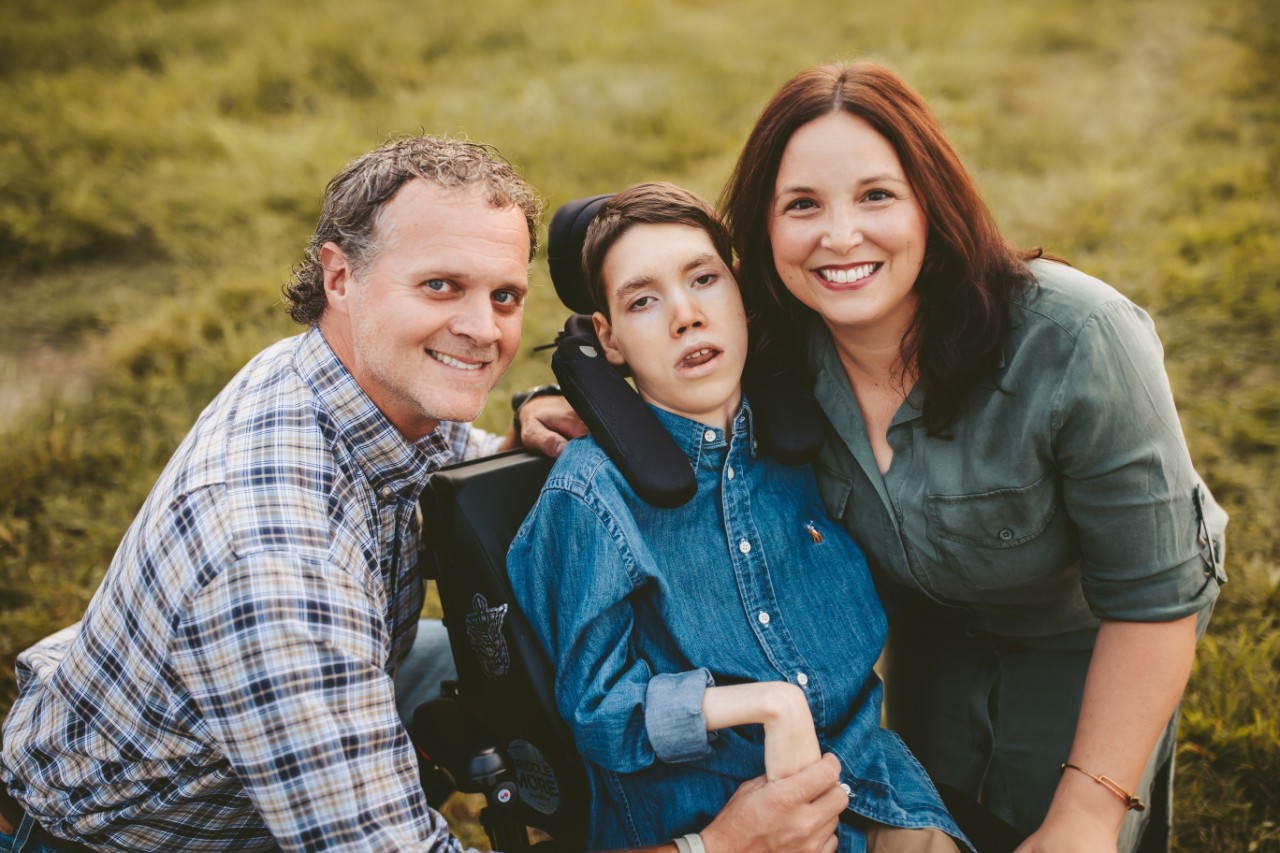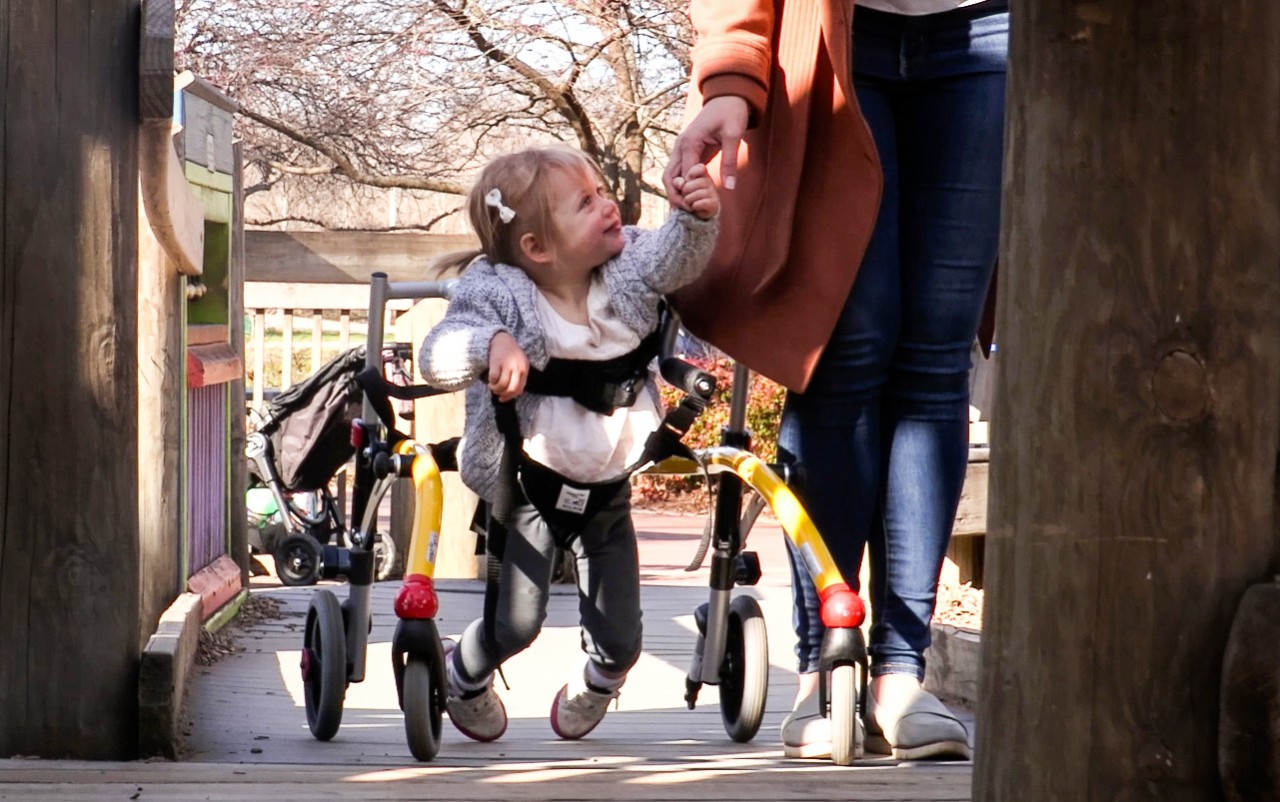Breaking Ground 110 - Families find the help they need with TN’s Katie Beckett program
By Cara Kumari, Assistant Commissioner of Communications and External Affairs, TN Department of Intellectual and Developmental DisabilitiesThe Katie Beckett program started in November 2020 and is now supporting nearly 1,500 kids across Tennessee who have disabilities and complex medical needs. The program serves children under the age of 18, even if their parents make too much money to get Medicaid. Katie Beckett has two parts, A and B. Many families have found the program helps their children to thrive and live their best lives. Families of children enrolled in Part A and Part B are sharing how the program meets their child’s individual needs.
Emory’s Story
Emory is a 5-year-old bundle of light and laughter with a twin sister and three other siblings to keep up with. Needing a wheelchair makes it difficult for Emory to participate in all the fun outdoor activities with her siblings and classmates. Using the funds available for Assistive Technology in Katie Beckett Part A, Emory now has a FreeWheel® for her wheelchair. This device is a third wheel that clamps to the wheelchair and turns it into an off-road vehicle. Now, Emory is not limited to watching from the sidewalk when others are playing on the field or joining in fun activities. Instead, she can be in the thick of the fun and activity.

Eli’s Story
Eli is 18 years old and relies fully on caregivers and supports to ensure his needs are met. Through the help of the Katie Beckett program, Eli’s mom was able to get connected with Eventa for added respiratory (breathing) supports. Eventa has positively affected Eli’s quality of life. It makes sure his family has all the right equipment and supplies to care for him at home. It has helped Eli to avoid emergency room visits and unplanned hospitalizations. His mom says she is grateful that she can use consumer-directed services to pay for Eli’s caregiver. She was paying for the caregiver without any help before Katie Beckett.
Eli just turned 18. This means he will be the first person in Katie Beckett Part A to transition into the Employment and Community First CHOICES program as he enters adulthood. His nurse care manager is helping Eli and his family with this change between programs.

Cosette’s Story
Two-year-old Cosette Smith loves to be on the move! After her mom, Nicole, picks her up out of a swing at Pinkerton Park in Franklin, Cosette squeals excitedly and points toward the big green slide. She gets into her new walker, grabs her mom’s hand, and then she’s on the go again. These are the moments her mom doesn't take for granted. “[When] I realized I had held her hand for the first time, it was just a very deeply impactful moment,” said Nicole. “She’s a mover and a shaker. We come here all the time. She likes to try to climb and slide and swing just like any other kiddo.”
Cosette’s walker was purchased with the support of Katie Beckett Part B. The new walker replaced a pre-used walker that was donated to the family. They appreciated the older equipment, but it wasn’t functional for the challenges Cosette was facing with cerebral palsy. Buying a new one would be very expensive. Nicole says she would’ve had to wait for another donated walker if it wasn’t for Katie Beckett funds. That would have delayed some of her daughter’s progress towards gaining the independence she wanted. Now her new walker is allowing Cosette to move herself across the playground, interact with other children with and without disabilities at daycare, and join in classroom events that she couldn’t join before. “Katie Beckett was a game-changer for us,” Nicole added. “With medical costs as high as they are and Cosette’s ever-changing needs, it has made a huge difference with what we're able to do with her.”
The program is also allowing their family to purchase other medical equipment and get non-traditional therapies recommended by their doctor. Combined with services through Tennessee Early Intervention System (TEIS), Nicole believes Cosette has a solid team of support that is improving her quality of life and setting her up for success.

Learn more and apply
Learn about the Katie Beckett program, how to apply, information about intake and enrollment, and program data at https://www.tn.gov/didd/katie-beckett-waiver.html.
For help with filling out the application or questions about the program, call your regional Dept. of Intellectual and Developmental Disabilities office:
- West Tennessee Regional Office: (866) 372-5709
- Middle Tennessee Regional Office: (800) 654-4839
- East Tennessee Regional Office: (888) 531-9876
What’s the difference between Katie Beckett Parts A and B?
- Part A helps children in Tennessee with the most significant disabilities or complex medical needs. A child must meet “institutional” level of care. That means they would qualify to get care in a medical setting like a hospital or a nursing home but want care at home. Children in Part A receive full Medicaid benefits. They also can get up to $15,000 in nonmedical services, called home- and community-based services. A child must have private insurance, and a premium may be required based on the family’s income.
- Part B is for children in Tennessee who have disabilities and complex medical needs who do not qualify for care in a medical institution. They meet “at risk” level of care. Children who qualify for Part A can get Part B if there is no slot available in A. Children in Part B do not receive Medicaid. Families get up to $10,000 a year in services to care for their child. Families can spend the money in Part B in any or all of 5 different ways:
- A card to pay for medical expenses
- Paying for a child’s private insurance premium
- Getting paid back for certain services including non-traditional therapies
- Hiring your own staff to provide respite and supportive home care
- Having a community provider for services